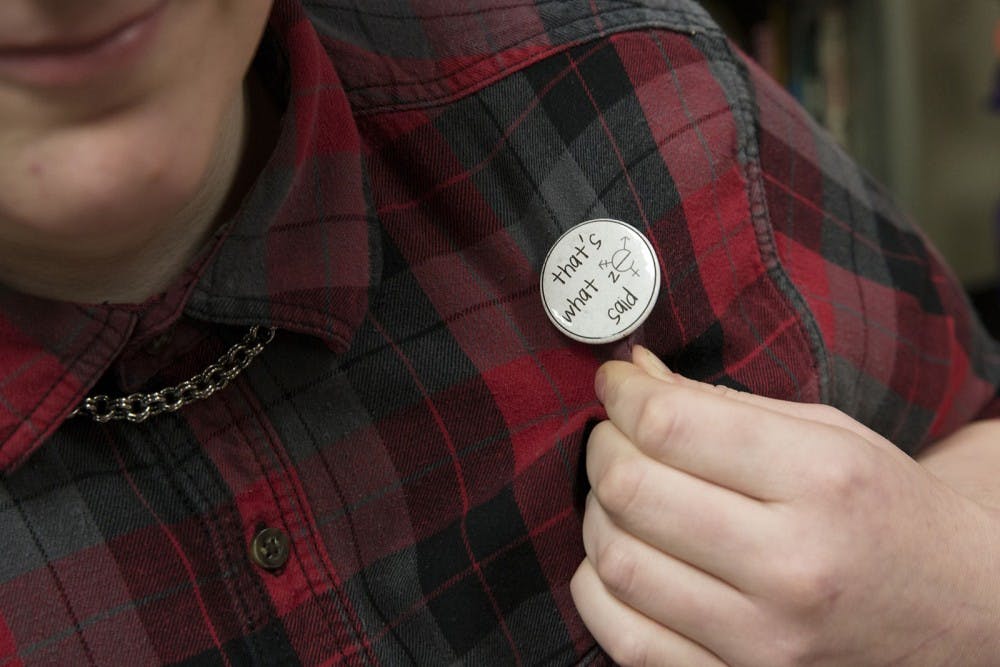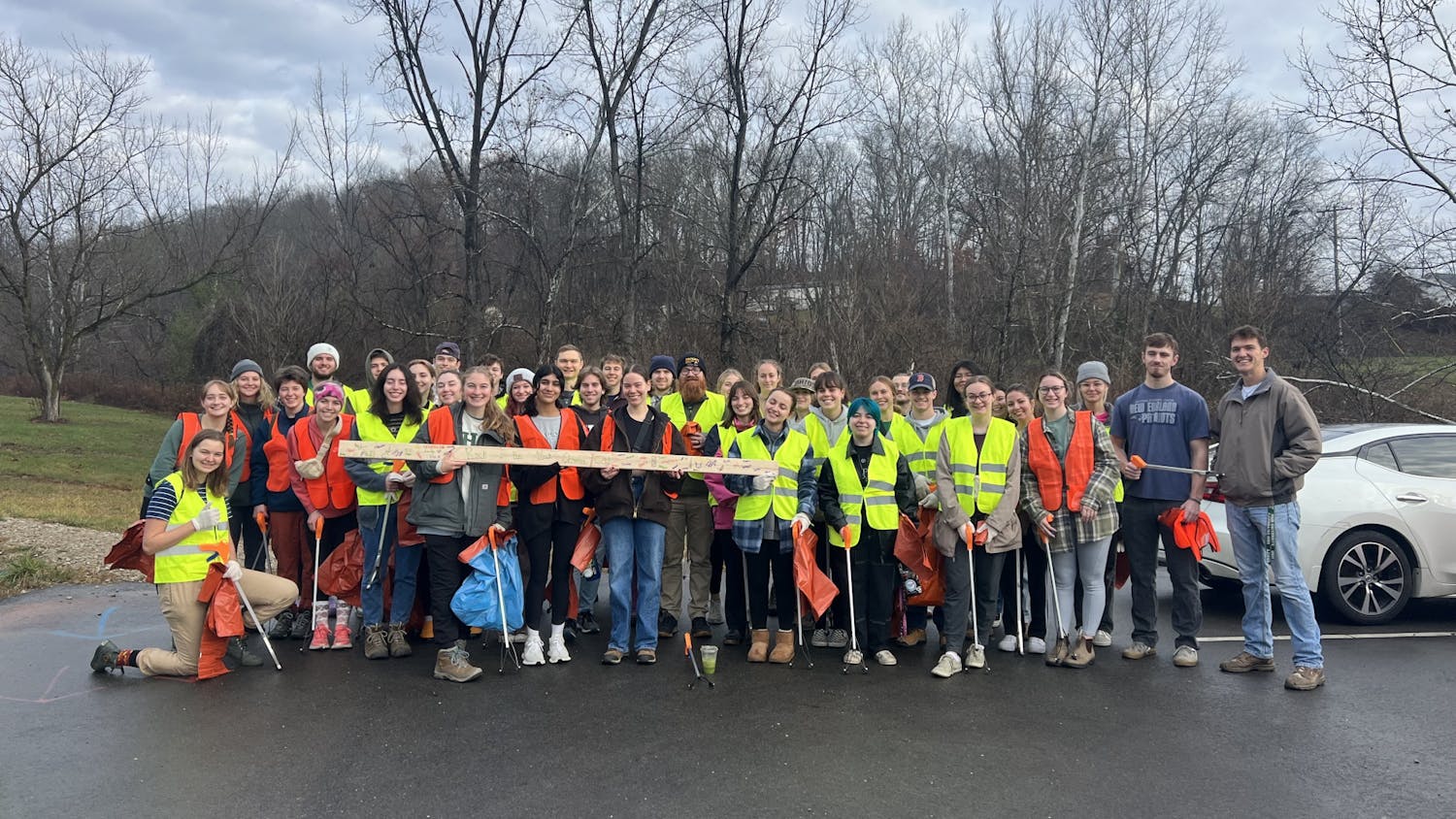A new policy this fall will allow students to change their name preference and pronoun preference online. This preferred name will show up on class rosters, advising lists and student identification cards. Ohio University is one of the few universities that offers students the option to select both their preferred name and pronouns.
Shortly before the Supreme Court of the United States ruled in favor of same-sex marriage Friday, Ohio University President Roderick McDavis approved a policy that will allow for further inclusion of LGBT individuals on campus.
The preferred name and pronoun policy, which was approved June 4, will allow all OU students to state their preferred names and select their preferred pronouns in their Student Portal, said Delfin Bautista, director of the LGBT Center. This name and pronoun will then show up on professors’ class rosters, advising lists and anywhere a student ID card is swiped.
The policy is expected to “have everything in place that is needed” by mid-July and will be fully-functioning for student use in the fall, Bautista said.
{{tncms-asset app="editorial" id="d607def2-1c43-11e5-8ade-a33ddc6684b2"}}
“Hopefully, what this will create is there may be faculty who may never know the legal name of a student,” Bautista said. “They may have Rachel in class, and Rachel has always been Rachel, but they may never know that Rachel’s legal name is Richard.”
Thus, students no longer need to worry about their legal names unintentionally “outing” them because their legal name does not match their identity.
The policy not only applies to transitioning students, but also to students who simply have a different name they prefer to go by, such as “Bob” for “Robert.” Additionally, the policy can benefit international students who choose to go by an American version of their name.
“We also talked about students who may be able to change their last name because their parents got divorced or issues of sexualized violence. There are a number of issues why a person may also want to change their last name, so the system is in place to also allow for that,” Bautista said. “We purposely framed it so that many different types of groups could benefit from the policy.”
The name on a student’s diploma will still be their legal name or a slight variation of their legal name, said Debra Benton, who works in the Office of University Registrar and was part of the team that helped create the policy.
{{tncms-asset app="editorial" id="3ba2b07e-1c13-11e5-8679-6b122b6968ab"}}
This policy comes from an effort started by the 2012-13 Student Senate’s LGBT commissioners, Taylor Hufford and Paige Klatt. Since that time, Hufford and Klatt worked closely with Bautista, former Vice President for Student Affairs Ryan Lombardi, Benton, and the Office of Information Technology on the technicalities of the policy.
The group plans to permit both the legal and preferred name on student ID cards, although “details are still being worked out,” Benton said.
“I think everyone, up to including the president, has been very supportive of the concept since it was introduced,” said Lombardi, who convened the group that met to discuss the policy. “It’s just been a long road because of the technology demands to make the change. Think of all the places you might swipe your ID: in housing, in campus rec. All these systems had to be synced up, and that has taken a lot of back-end effort to get done, and it’s been a heroic task by all of our staff.”
Ohio University is not the first school to enact such a policy. Miami University, Ohio State University and Case Western Reserve University all have preferred name policies, Bautista said, but OU has one of the few policies that also includes pronoun preference.
“There are a few schools that do both, but we are being a pioneer and a leader in not only respecting names but also pronouns,” Bautista said.
Students can select from more recognized, gender-inclusive pronouns such as she/her, he/him and they/them, as well as newer pronouns that Bautista said came out this year, such zie/zim and ey/em.
Students can then edit their pronouns from the provided list and thus are able to report any pronoun, Benton added.
{{tncms-asset app="editorial" id="70d6c65a-e3a5-11e4-917a-cf583c5d4a16"}}
Stefan Koob, a sophomore who is transgender, said that when entering campus as a freshman, he had to email all of his professors to let them know that he would not identify with his legal name Ashley or the she/her pronouns associated with it.
Once the policy is in place, students won’t have that problem any longer.
“All of my professors responded pretty quickly, and they were pretty OK about it, but (the policy) is going to be really beneficial for people who are anxious about having to email their professors,” said Koob, who is studying women’s, gender and sexuality studies. “I think it could (create acceptance) because any time a policy comes about, people understand and bring it into the light a little bit more just by hearing about it.”
Klatt said she is not sure whether the recent media attention on Caitlyn Jenner’s transition or the legalization of same-sex marriage played a role in getting the policy approved, but she said she hopes that the attention will help create acceptance of a policy of this nature.
“Our campus, in my opinion, is very accepting, and I think a majority of students and faculty will view the policy positively,” said Klatt, a senior studying specialized studies. “Of course there will be some who… will not agree, but I think having this policy in place will help combat some of those negative reactions. My hope is that we continue to educate the community and that if they have questions, they are asking.”
Although Lombardi will no longer be with OU after accepting a position with Cornell University, he said he is excited Hufford and Klatt will still be able to see their years of work put into place.
“OU has really prided itself for many years on being an inclusive campus. Having a system like this in place where students can really be affirmed through their preferred name and identity is so important to the rich history of inclusivity,” Lombardi said. “I only see good things from this change in policy.”
@rachel_hartwick
rh375113@ohio.edu






